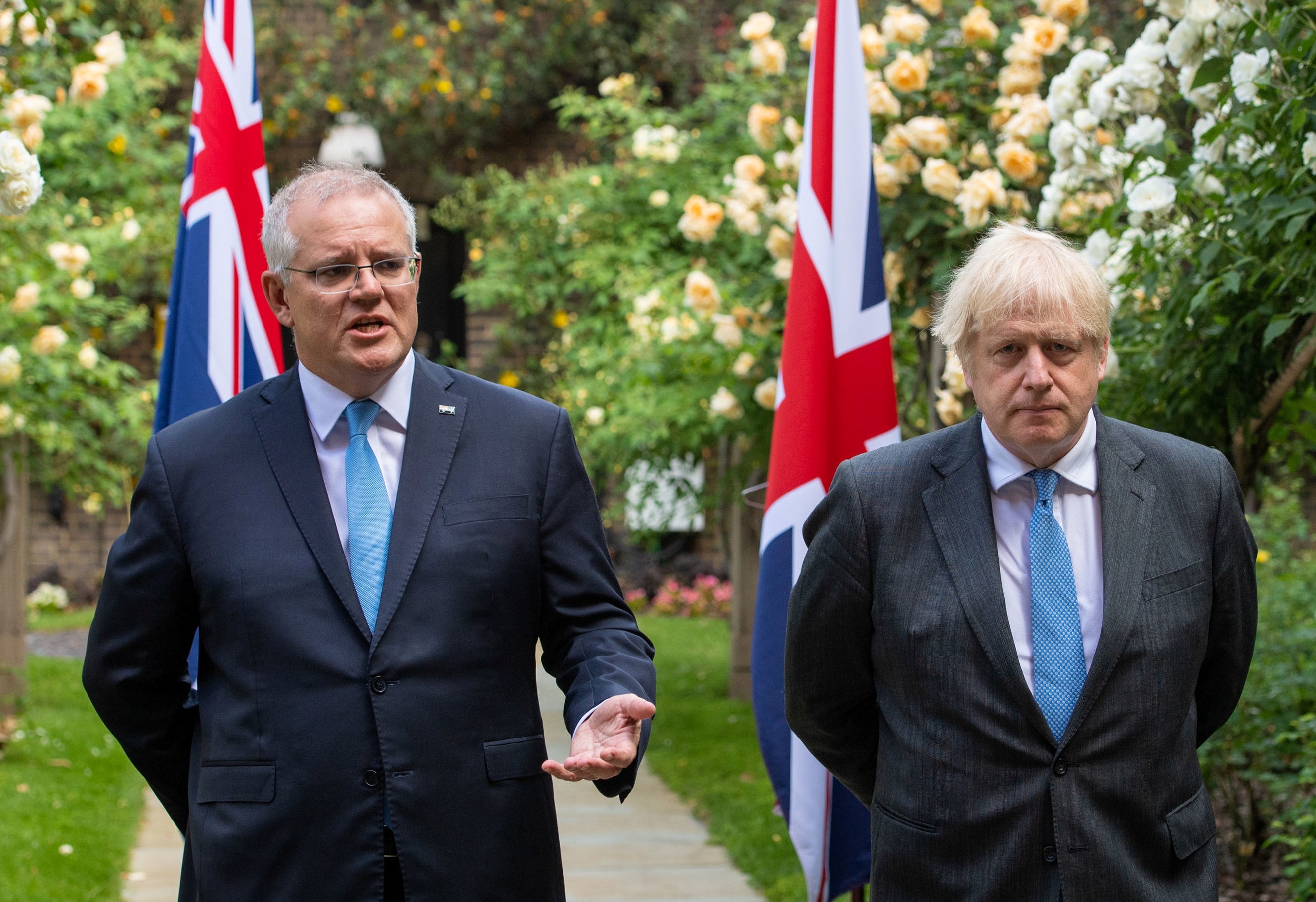The UK-Australia trade deal is not a game changer – but it heralds a welcome change in direction
Trade between the two nations is small, there is no getting around that. But parts of the accord may become a template for future agreements, writes Hamish McRae


The trade deal with Australia is not in itself a game changer, and this is for two reasons. UK trade with Australia is too small – 1.2 per cent of the total – to move the dial, and trade is driven by economic forces, not administrative agreements. The UK’s largest export market is the US and we don’t have a deal with them yet.
But the agreement matters in other ways. It is the first to be reached that is not simply rolling over one that we had already signed up to when we were part of the EU. It is a step along a path that will, over time, help rebalance UK trade away from Europe. This was already happening, as non-EU markets were growing faster than European ones. Deals like this will cause the shift to occur a little faster.
For example, in 2020 France and Italy were the two biggest suppliers of wine to the UK. Australia and New Zealand were a long way behind at numbers three and four. But the gap closed a little, as sales fell for both France and Italy, whereas they rose for Australia and New Zealand. So the shift was already taking place.
Now that UK importers will no longer have to pay import duty on Australian wines, these products will be on a level playing field with those from Europe. It is plausible that in a few years, we will be buying more wine from Australia than we do from France.
The UK-Australia trade deal is also a pathway towards a wider one with the countries around the Pacific rim. The UK has applied to join this trading group, which goes under the inelegant name of the Comprehensive and Progressive Agreement for Trans-Pacific Partnership.
There are 11 members, including Australia, New Zealand, Japan, Canada, Mexico, Singapore, Malaysia and so on. The US originally was to join this organisation’s predecessor but pulled out. Even without the US but with the UK, its members would total roughly the same economic size as the EU.
Of course, a loose agreement between countries that are physically a long way apart to trade together is not at all a substitute for the EU’s single market, but the UK joining would be another indication of the way world trade is moving.
It is also an indicator of how global ties seem to be shifting. Physical distance matters less; culture and language matter more. The fact that services are included in the arrangements is another indication of this, for culture is a much more important element of services than it is in raw materials or manufacturers.
It is early days, but it looks very much as though the focus of world trade will shift from trade in goods to trade in services. That would certainly play to Britain’s strengths as the world’s second-largest exporter of services, but up to now, the services trade has been more restricted than the goods trade. This deal is a pioneer in including services as an area for liberation.
A further way in which the Australia deal may become a template for future agreements is in the provision for young people to be able to travel and work more freely in each other’s countries.
Working visas will go up to three years and the age limit for visas rises from 30 to 35 years. This is not an immigration deal. This is not compensation for the loss of the freedom to go and get a job in Europe, but it is a sign that the authorities recognise that a lot of young Britons want to spend some time working and getting to know Australia – and vice versa. It is not difficult to see similar arrangements for New Zealand and Canada.
Whenever a trade deal is signed, there is a temptation to focus on the details. What does this mean for beef imports to the UK or whisky exports to Australia? In the long view, these surely matter less than the change of direction that an agreement like this one signals.
At the beginning of the 20th century, more than half of Australia’s trade was with the UK, while Australia was the largest source for wheat imports to Britain, and supplied half of its wool. It was only in the mid-1960s, after Britain had joined the European Economic Community, that the US overtook it as Australia’s largest trading partner.
We are not going back to that old close relationship – no one would want that – but this is a reset nonetheless, and a welcome one.
Join our commenting forum
Join thought-provoking conversations, follow other Independent readers and see their replies
Comments